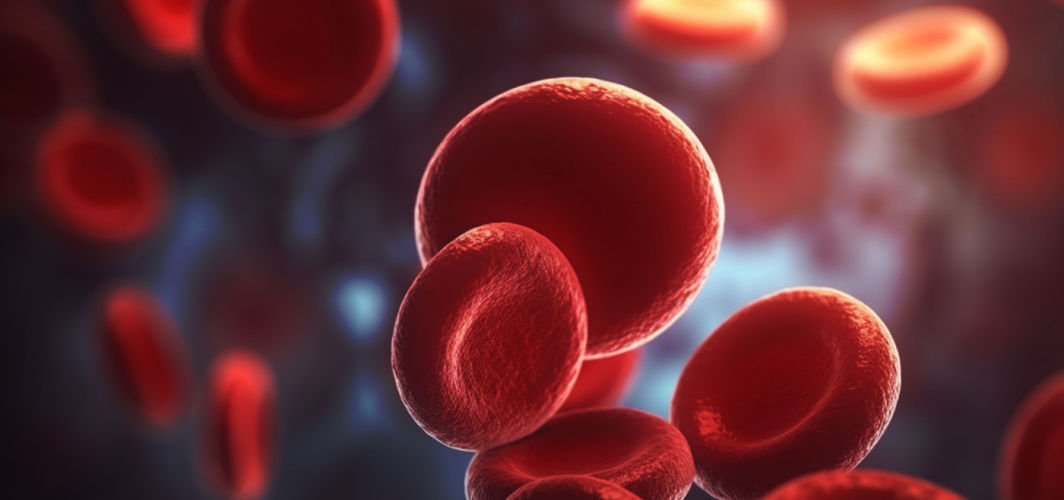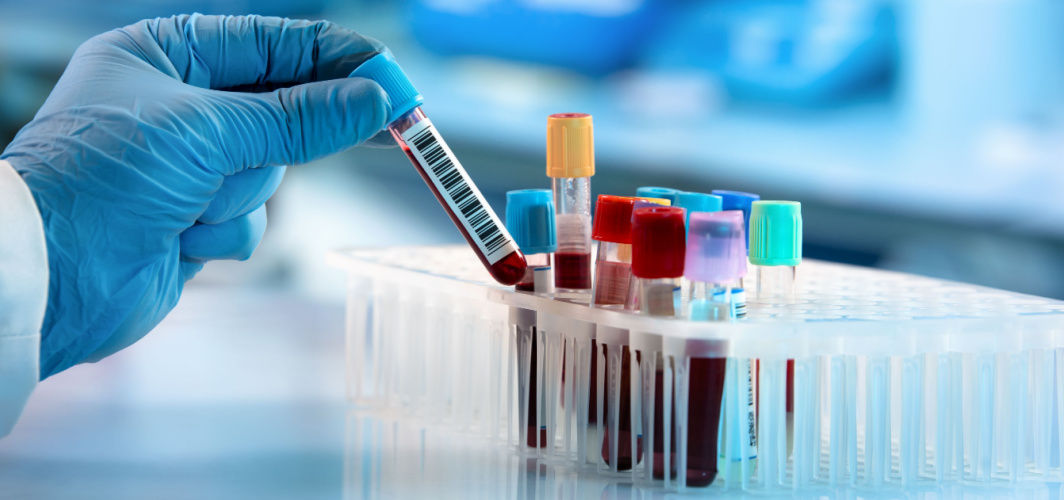General Health
Blood Disorders: Types, Symptoms & Treatments
7 min read
By Apollo 24|7, Published on - 12 October 2023
Share this article
0
0 like

Blood is a vital component of our bodies, playing a crucial role in delivering oxygen, nutrients, and hormones to every cell. It also helps in removing waste products and maintaining a stable internal environment. However, sometimes the blood itself can be affected by various disorders, leading to significant health issues. In this blog, we will explore different blood disorders types, their symptoms, and available blood disorder treatments. The aim is to provide you with valuable insights into these conditions so that you can better understand and manage them.
What are Blood Disorders?
Blood disorders encompass a range of conditions that affect the composition and functioning of blood. These disorders can disrupt the normal production of blood cells, hinder the clotting process, or cause abnormal levels of certain components in the blood.
What are the Common Types of Blood Disorders?
Blood disorders types encompass a range of conditions such as:
1. Anaemia
Anaemia occurs when there is a haemoglobin deficiency or a decrease in the number of red blood cells. This condition can be caused by various factors, including:
- Iron Deficiency: Iron deficiency anaemia is the most common type and is caused by a lack of iron in the diet or an inability to absorb iron properly.
- Vitamin Deficiencies: Vitamin deficiency anaemia results from inadequate intake or absorption of certain vitamins like vitamin B12 or folic acid.
- Genetic Abnormalities: Certain genetic abnormalities such as sickle cell disease cause the red blood cells to become misshapen and break down easily.
Symptoms: The symptoms of anaemia may include fatigue, weakness, shortness of breath, pale skin, and dizziness.
Diagnosis: Diagnosis involves blood tests to measure haemoglobin levels and identify the underlying cause.
Treatment: Treatment options may include dietary changes, supplementation, medications, or blood transfusions.
2. Haemophilia
Haemophilia is a rare genetic disorder where the blood lacks certain clotting factors, leading to excessive bleeding even from minor injuries. Haemophilia A is caused by a deficiency in factor VIII, while Hemophilia B is caused by a deficiency in factor IX.
Symptoms: Symptoms of haemophilia may include prolonged bleeding after injury or surgery, easy bruising, joint pain or swelling due to internal bleeding, and nosebleeds that are difficult to stop.
Diagnosis: Diagnosis involves blood tests to measure clotting factor levels.
Treatment: Treatment options include replacement therapy to replenish the missing clotting factors, medications to promote clotting, and physical therapy to manage joint issues.
3. Leukaemia
Leukaemia is a type of cancer that affects the blood-forming tissues, such as the bone marrow and lymphatic system. It leads to the abnormal production of immature white blood cells, crowding out healthy cells and impairing their function. There are different types of leukaemia, including:
- Acute lymphoblastic leukaemia (ALL)
- Chronic lymphocytic leukaemia (CLL)
- Acute myeloid leukaemia (AML)
- Chronic myeloid leukaemia (CML)
Symptoms: Symptoms may vary but can include fatigue, recurrent infections, easy bleeding or bruising, enlarged lymph nodes, and unexplained weight loss.
Diagnosis: Diagnosis involves blood tests, bone marrow biopsy, and genetic testing.
Treatment: Treatment options depend on the type and stage of leukaemia but may include chemotherapy, radiation therapy, targeted therapy, or stem cell transplantation.
Other Blood Disorders
In addition to the common blood disorders mentioned earlier, several other conditions can affect the blood. Let's take a closer look at three of these disorders:
1. Thrombocytopenia
Thrombocytopenia is a condition characterised by a low platelet count in the blood. Platelets are crucial for clotting and preventing excessive bleeding. Various factors can contribute to thrombocytopenia, including certain medications, infections, autoimmune disorders, and bone marrow disorders.
Symptoms: Common symptoms of thrombocytopenia include easy bruising, prolonged bleeding from cuts or injuries, petechiae (small red or purple spots on the skin), and frequent nosebleeds.
Diagnosis: To diagnose thrombocytopenia, your doctor may perform a blood test to measure the platelet count.
Treatment: Treatment options for thrombocytopenia depend on the underlying cause and severity of the condition. Medications like corticosteroids or immune globulin may be prescribed to increase platelet production. Severe cases may require platelet transfusions or certain surgical procedures.
2. Polycythemia Vera
Polycythemia vera is a rare blood disorder that leads to the overproduction of red blood cells in the bone marrow. This condition thickens the blood, increasing the risk of blood clots and other complications.
Symptoms: Symptoms of polycythemia vera include fatigue, headache, itching after a warm bath, dizziness, and enlarged spleen.
Diagnosis: A doctor may perform a series of tests, including complete blood count, bone marrow biopsy, and genetic testing, to diagnose polycythemia vera.
Treatment: The treatment for polycythemia vera aims to reduce the risk of blood clots and manage symptoms. This may involve regular phlebotomy (removal of blood) to lower red blood cell count, medication to reduce excessive production of red blood cells, and aspirin therapy to prevent clotting.
3. Hemochromatosis
Hemochromatosis is a genetic disorder that causes the body to absorb too much iron from the diet. This excess iron accumulates in various organs, potentially causing damage over time.
Symptoms: Symptoms of hemochromatosis may include fatigue, joint pain, abdominal pain, and darkening of the skin.
Diagnosis: A doctor may order blood tests to measure iron levels and perform a liver biopsy to confirm the diagnosis.
Treatment: The treatment for hemochromatosis involves regular phlebotomy to remove excess iron from the body. In some cases, medication may be prescribed to help reduce iron absorption. It is also important to make dietary changes by avoiding iron-rich foods and vitamin C supplements, which enhance iron absorption.
Treatment Options for Blood Disorders
Blood disorders treatments vary depending on the specific condition but commonly include:
1. Medication and Supplements
One common treatment for blood disorders is the use of medications and supplements. Iron supplements, for example, may be prescribed to individuals with iron deficiency anaemia to help boost their iron levels.
However, it is important to note that different blood disorders require different medications and supplements. For instance, clotting factors may be prescribed for individuals with haemophilia to help their blood clot properly.
2. Blood Transfusions and Stem Cell Transplants
Another blood disorders treatments option for certain disorders includes blood transfusions. This involves receiving healthy blood from a donor to replace your blood that may be affected by a disorder. Blood transfusions can be beneficial in conditions such as sickle cell disease or severe anaemia.
In some cases, stem cell transplants may be recommended. This procedure involves replacing faulty stem cells in the bone marrow with healthy ones. It can be an effective treatment for blood disorders such as leukaemia and lymphoma.
3. Lifestyle Changes and Self-Care Tips
In addition to medical treatments, making certain lifestyle changes can also play a role in managing blood disorders effectively.
- Adopting a well-balanced diet that includes foods rich in iron, vitamin B12, and other essential nutrients can support overall blood health.
- Regular exercise is also important as it helps improve circulation and oxygenation of the blood.
- Managing stress levels is crucial for individuals with blood disorders as stress can exacerbate symptoms. Engaging in activities such as meditation, yoga, or deep breathing exercises can help reduce stress levels and promote overall well-being.
- Regular medical check-ups and follow-up care are essential for monitoring your condition and ensuring its proper management.
Prevention and Outlook for Blood Disorders
When it comes to blood disorders, prevention plays a crucial role in maintaining good health. By adopting certain preventive measures, you can reduce the risk of developing these conditions.
1. Preventing Blood Disorders
For individuals with a family history of blood disorders, genetic counselling is highly recommended. It helps in understanding the risk factors and making informed decisions about family planning and managing potential complications.
2. Outlook for Individuals with Blood Disorders
The long-term outlook for individuals with blood disorders varies depending on the specific condition. Some blood disorders can be managed effectively with proper treatment and lifestyle modifications, allowing individuals to lead a normal life. However, certain conditions may have a more significant impact on life expectancy and quality of life.
Advancements in the field of haematology are continually being made through ongoing research. These advancements aim to improve diagnosis techniques, develop better treatment options, and enhance overall patient care. Individuals with blood disorders must stay updated with the latest research and seek guidance from healthcare professionals to manage their condition effectively.
Conclusion
In conclusion, we have discussed various types of blood disorders, blood disorders symptoms, and treatment options. It is crucial to understand that blood disorders can affect anyone, regardless of age or gender. Early detection and prompt medical attention are vital for managing these conditions effectively. With the right medical care and lifestyle adjustments, individuals with blood disorders can lead healthy and fulfilling lives. Stay informed, seek medical attention when needed, and prioritise your health!
General Health
Consult Top Hamatologists
View AllFrequently Asked Questions
What are the symptoms of blood disorders?
What are the symptoms of blood disorders?
Can lifestyle factors affect blood disorders?
Can lifestyle factors affect blood disorders?
How are blood disorders diagnosed?
How are blood disorders diagnosed?
What are the treatment options for blood disorders?
What are the treatment options for blood disorders?
Can blood disorders be prevented?
Can blood disorders be prevented?
Leave Comment
Recommended for you

General Health
The 7 Most Common Diagnostic Tests
Explore the essential 7 diagnostic tests. Learn their importance, procedures, and how they contribute to better healthcare outcomes.

General Health
Stomach Ache: When To See A Doctor?
Discover the causes, symptoms, and treatment options for stomach aches, and learn when to see a doctor

General Health
Can Diabetes Cause Blurry Vision?
Discover the connection between diabetes and blurry vision, how it affects your eyes and how you can prevent or manage it. Stay informed and protect your vision!
Subscribe
Sign up for our free Health Library Daily Newsletter
Get doctor-approved health tips, news, and more.
Visual Stories

Plant-based Foods That Are a Great Source of Iron
Tap to continue exploring
Recommended for you

General Health
The 7 Most Common Diagnostic Tests
Explore the essential 7 diagnostic tests. Learn their importance, procedures, and how they contribute to better healthcare outcomes.

General Health
Stomach Ache: When To See A Doctor?
Discover the causes, symptoms, and treatment options for stomach aches, and learn when to see a doctor

General Health
Can Diabetes Cause Blurry Vision?
Discover the connection between diabetes and blurry vision, how it affects your eyes and how you can prevent or manage it. Stay informed and protect your vision!